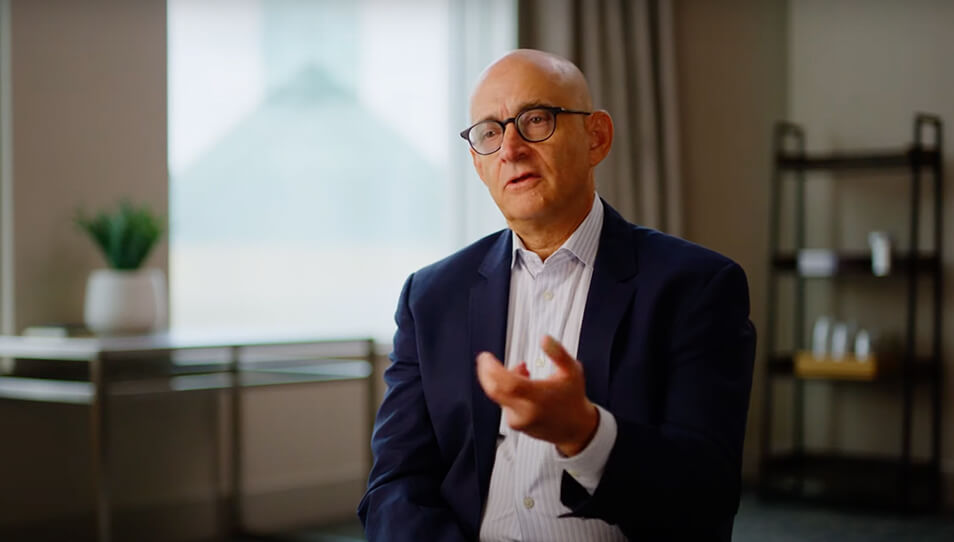‘Payers Can’t Do It Alone,’ Providence Health Plan CMO on Selecting a Value-Based Kidney Care Partner
Providence Health Plan was looking for a partner with strong clinical relationships, advanced educational materials, and expertise in care management.
tags

Value-based care (VBC) is a key component of Providence Health Plan’s strategy to improve patient outcomes while reducing costs. And the health system has seen dramatic results, particularly in the field of primary care.
“Providence has been a leader and an innovator in VBC, especially in primary care, for over 30 years,” said Robert Gluckman, MD, former chief medical officer of Providence Health Plan. “We know from our own care management that VBC can have a positive outcome.”
From primary care to chronic kidney disease
Now, through a partnership with Interwell Health, Providence is bringing the benefits of this care model to its chronic kidney disease (CKD) patient population.
“This is a really important foray into a partnership to see how we can impact a highly prevalent chronic disease that has a real impact on people,” Gluckman said.
It’s also a way for the health plan to deliver on its commitment to provide the right care at the right time.
“Whether that's face-to-face care, whether that's telehealth, whether that's a digital platform…anything that [our patients] need, wherever they need it, is where we need to be able to provide it.”
Dr. Gluckman and his team rely on Interwell to connect the dots between payers and nephrologists so CKD patients can receive tailored support for this complex, often difficult to manage disease.
Connecting the dots
Gluckman and his team rely on Interwell to connect the dots between payers and physicians so patients can receive tailored support for a complex, often difficult to manage disease.
“Payers can’t do it alone, and providers can’t do things alone,” he explained. “An external partner like Interwell can provide things we can’t.”
In a recent conversation, Gluckman shared his vision for the future of value-based kidney care and the benefits of working with a partner who advances their mission.
Q: At Providence, you’ve seen the impact of a VBC model on primary care. Does that same potential exist for CKD?
RG: I have little doubt that we can have a real impact on outcomes in CKD. We know from our primary care models that controlling certain things like hypertension and diabetes has a positive outcome.
I'm looking forward to seeing how this comprehensive partnership with Interwell, along with our specialist community and primary care backbone will achieve results for patients.
Q: How can VBC make a difference for people living with kidney disease?
RG: CKD is an ideal opportunity to apply VBC for a number of reasons.
When we apply VBC, we're trying to think about the negative outcomes that we're interested in forestalling.
CKD has a lot of complications, and many of the interventions we can apply don’t lend themselves to a fee-for-service model. VBC can provide the resources that patients need for beneficial outcomes, which we as a payer also want.
Q: How do VBC strategies fit into your objective as chief medical officer?
RG: As a chief medical officer of a provider-sponsored plan, I’m constantly thinking about how we best partner with our provider base. Traditionally, a lot of VBC interventions are primary care based.
But as we start to think about the next, more advanced models that we need for chronic diseases, many of them have a specialist as their primary care provider.
CKD is one of those. If we want to impact population health for patients with high-cost chronic conditions, we must partner with the specialist community. Our partnership with Interwell allows us to do that.
Q: What made you think: ‘We need a partner to help us with this patient population?’ And what were you looking for in that partner?
RG: As a provider-sponsored plan that’s thinking about how to manage population health, there are times when we need a partner to help us.
When I'm thinking about who a good match for us might be, one consideration is the level of partnership they can have with our clinical network.
We have strong relationships with local partners who also had a very strong relationship with Interwell. So that was an important criterion.
When we’re considering the value add, the value add for us was structuring an arrangement that emphasized improvement in clinical quality and allowed us to have a reimbursement mechanism focused on preventing complications that positively impacts patients.
We also were looking at some of the technical things that [a partner] could bring that we couldn't, like a digital platform, some of the education materials, some of the focused expertise in care management. Those were all the things that led us to Interwell.
Interwell had resources like a robust digital platform and really advanced educational materials for patients that we couldn't produce on our own. And Interwell could deliver specific clinical care. These are all things that are unique to our partnership.
Q: How does this partnership help advance your mission?
RG: One of the beauties of this program with Interwell is that it's so patient-focused.
We have a care team that includes a nephrologist, care managers, social workers, and dietitians. They have to know the patient's unique circumstances and how that interacts with their experience with their illness.
The comprehensiveness of this lets us focus on that person and connects us to our core mission – to respect the dignity of every human life.

Robert Gluckman, MD
Chief Executive Officer
Dr. Robert Gluckman has served as Chief Medical Officer for Providence Health Plan since 2012, where he oversees pharmacy benefit administration, provider contracting, and coding compliance.